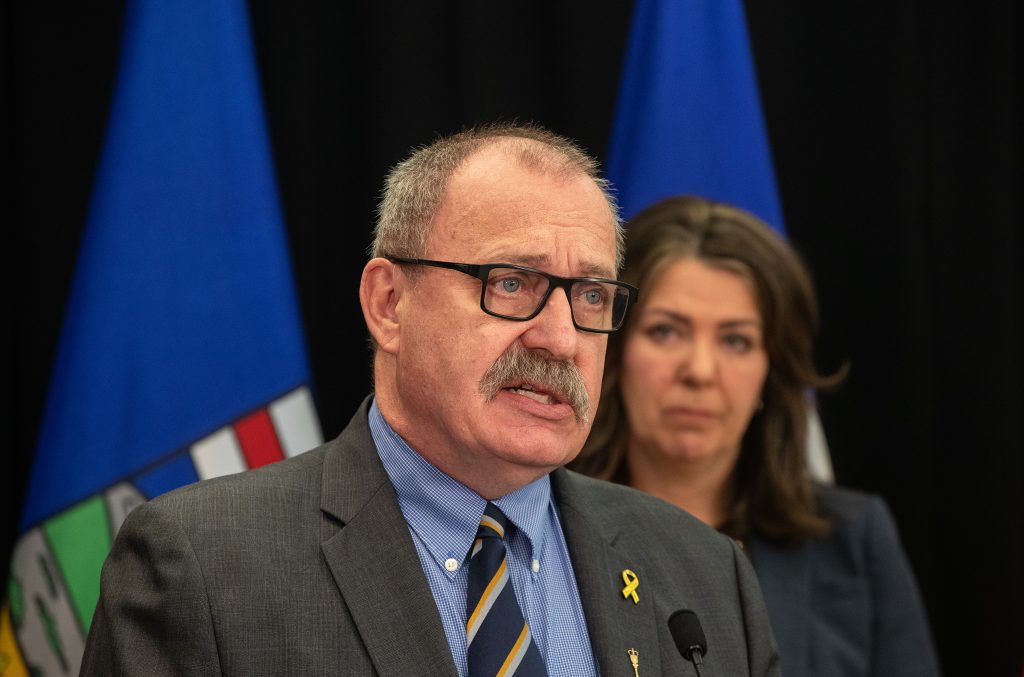Montreal hospital says foreign patient didn’t get special treatment
Posted Feb 1, 2013 6:13 pm.
This article is more than 5 years old.
MONTREAL – A Montreal hospital says it didn’t compromise the care of average Quebecers when it admitted a Kuwaiti woman for emergency surgery and charged her country’s government nearly $200,000.
The McGill University Health Centre took heat Friday after a newspaper report accused the hospital of giving the woman special treatment paid for with “petrodollars” while average Quebecers were forced to endure long wait times.
Provincial Health Minister Rejean Hebert said at a Parti Quebecois caucus meeting near Montreal it is “unacceptable” if foreign citizens jump the line and are treated before Quebecers in their own hospitals. He insisted Quebec is not a destination for so-called medical tourism.
He acknowledged hospitals can treat foreign cases on compassionate grounds.
“We can do this for humanitarian reasons but if it is done for budgetary reasons, then we have a big problem,” said Hebert.
Hospital spokesman Ian Popple said the provincial government at the time approved the woman’s emergency cardiac surgery in rooms that had been closed due to budget cuts.
“This was a case that was done above and beyond the cases that we’re budgeted to do by the Quebec government,” Popple said.
“This didn’t impact care. We always prioritize care of Quebec patients and that was done according to government guidelines.”
Popple said the decision to bring the woman to Montreal in December 2011 was made because she couldn’t get equivalent treatment in her home country. The office of then-health minister Yves Bolduc was contacted “and we were given the green light.”
Under government rules covering health-care treatment for non-residents of Quebec, the Kuwaiti government had to pay three times what it would cost a Quebec patient.
Popple said doctors ended up billing about $45,000 while use of an operating room, an intensive care berth and a recovery bed with staff came to about $150,000. The hospital-related costs for a Quebec patient would have been about $50,000.
“We did the surgery after regular surgery hours and opened up and staffed a room that was not budgeted for by the Quebec government,” Popple said.
He said he was unaware of similar incidents in the past and stressed the hospital isn’t looking for other such cases.
“We’re not looking to do that again,” he said, adding that if such an exceptional case arose again, the hospital would follow the same procedures.
“We’re able to provide a very highly specialized level of care that is not available in other parts of the world,” Popple said.
“If there’s a situation where someone’s life can be saved on compassionate grounds like this, I think there’s the possibility that the option is open.”
Medical tourism has been a hot-button issue for several years with stories of people going to other countries to obtain rare treatment. Others are seeking elective surgery or trying to avoid long wait times in their own countries.
In 2000, then-Quebec health minister Pauline Marois, who is now premier, announced the province would send cancer patients to the United States for care after they had been waiting for radiation treatments for more than eight weeks.
Ontario had already instituted a similar plan.
A number of Canadian hospitals have international patient plans that accept referrals and allow billing for the cost of treatment.
Bryce Taylor, director of the international patient program at the University Health Network in Toronto, said the underlying principle of his network’s effort is that no Ontario patient will be inconvenienced or have a longer wait time.
“We’ve had similar patients from Kuwait and elsewhere who couldn’t get the treatment at home and so they came here,” he said, adding their local government would usually pay for treatment.
Taylor said the program network, which includes the Toronto General Hospital as well as three other major care centres, is also approved by the Ontario Health Ministry and treats non-urgent foreign patients based on their ability to pay.
He noted that revenue generated from foreign patients can actually benefit local patients in an era of tight budgets.
“It’s the sort of thing that has to be done very carefully, it has to be done transparently and it has to be done with a clear definition of the benefits to the Ontario patient,” he said, pointing out hospitals charge for many things, including parking. “They have to make money.”
Those revenues go into patient care, he added.
Hebert said no action would be taken against the Montreal hospital.
(With a file by Melanie Marquis and Patrice Bergeron in L’Esterel, Que.)










